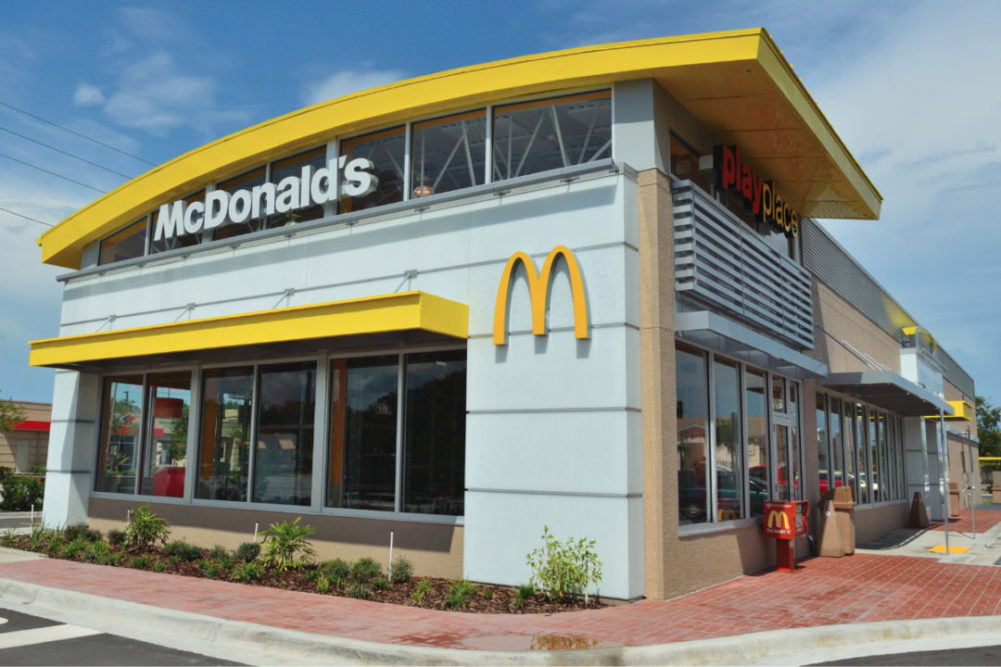CHICAGO – McDonald’s Corp. confirmed that the company is on track to meet its animal welfare commitments, which include sourcing crate-free pork.
The fast-food chain recently issued a statement in response to activist investor Carl Icahn who launched a proxy fight with McDonald’s over the company’s sourcing of pork. Icahn argued that McDonald’s has not lived up to commitments the company made in 2012 to require its US pork suppliers to phase out the use of sow gestation stalls.
Icahn, who owns 200 shares of McDonald’s stock, nominated two candidates for seats on the McDonald’s board. McDonald’s confirmed the nominations and addressed Icahn’s criticisms.
“Mr. Icahn’s stated focus in making this nomination relates to a narrow issue regarding the company’s pork commitment, which The Humane Society US has already introduced through a shareholder proposal,” the company said. “This is an issue on which McDonald’s has been a leader.
“The company sources only approximately 1% of US pork production and does not own any sows or produce or package pork in the United States. Nevertheless, in 2012 it became the first major brand to make a commitment to source from producers who do not use gestational crates for pregnant sows. Since making this commitment, McDonald’s has led the industry, and today an estimated 30 – 35% of US pork production has moved to group housing systems. McDonald’s pioneering commitment was shaped with the industry and the American Association of Swine Veterinarians and builds on the company’s decades-long commitment to animal health and welfare and its overall ESG strategy.”
By the end of 2022, McDonald’s expects to source 85% to 90% of its US pork from sows not housed in gestation crates during pregnancy.
“Despite industry-wide challenges for farmer and producers, such as the COVID-19 pandemic and global swine disease outbreaks, the company expects 100% of its US pork will come from sows housed in groups during pregnancy by the end of 2024,” McDonald’s said.
McDonald’s noted that Icahn is the majority owner of Viskase, which produces and supplies packaging for the pork and poultry industry.
“Mr. Icahn’s ownership provides him with unique exposure to the industry-wide challenges and opportunities in migrating away from gestation crates,” McDonald’s said. “Thus, it’s noteworthy that Mr. Icahn has not publicly called on Viskase to adopt commitments similar to those of McDonald’s 2012 commitment.”
In a separate issue, a coalition of groups urged McDonald’s to establish specific targets aimed at removing medically important antibiotics from company’s supply chain for beef. Earlier this month, the coalition of animal welfare, public health and food safety groups sent a petition to Chris Kempczinski, chief executive officer of McDonald’s, urging the company to establish firm targets for reducing the use of medically important antibiotics in its global supply chain for beef.
The petition came in response to a study published in January in The Lancet about “the global burden” of antimicrobial resistance (AMR).
“Antibiotic resistance is a global health crisis fueled in part by overusing life-saving medicines to produce cheaper meat,” said Matt Wellington, US PIRG’s Public Health Campaigns Director. “As one of the world’s biggest beef purchasers, McDonald’s has the power to pressure meat producers to transform how they use antibiotics and raise animals. Now, McDonald’s has to follow through and do it.”
MEAT+POULTRY reached out to McDonald’s for an update on the company’s progress on this initiative but received no response at the time of publication.


